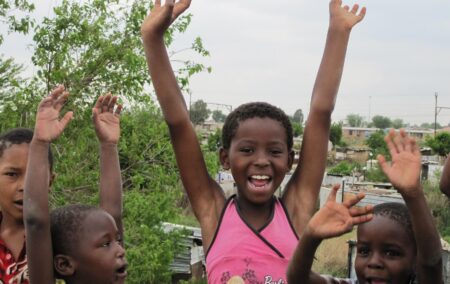Congratulations to the matric class of 2024. Theirs is an achievement many South African children only hope to attain, but even for these matriculants, what lies ahead is far from plain sailing.
The latest Quarterly Labour Force Survey shows eight million South Africans are unemployed and an additional 16.5 million are either discouraged from seeking work or are not economically active. Every day, these South Africans wake up only to have their hopes dashed by the lack of work opportunities – chiefly the result of ANC policy. The National Minimum Wage (NMW) is one key culprit. In the IRR’s Blueprint for Growth: Generating Jobs and Skills for Prosperity and Growth, Dr Anthea Jeffery notes “the NMW demands that employers pay so much for their generally inadequate services that it is locking them out of the labour market.”
New research conducted by UCT academics on behalf of the National Minimum Wage Commission shows increased non-compliance and evidence that employers are reducing working hours to “absorb” the cost of the wage increase.
A 2020 survey by Afrobarometer showed that South Africans would rather prefer working for lower wages than not having job opportunities at all: 80% would rather be employed with low wages than be without work.
The desperation for job opportunities cannot be understated. Recent IRR polling has shown that South Africans believe it to be one of the top two most important priorities for government to address.
It is a moral imperative.
Youth unemployment is above 60%, and the future of South Africa’s labour market is in peril.
Strategic Reorientation
The Department of Basic Education’s new Strategic Reorientation Plan that will focus on maths and science can only work if teachers are prepared to put in the effort to ensure that students are prepared for future careers as scientists, doctors and other highly skilled professionals. Where students are failing, teachers and others in the education sector should not shy away from recommending vocational training.
For far too long, students have thought that university is a no-brainer after high school. I’ll admit, I was one of them.
South Africa is facing a dearth of professionally skilled construction workers, nurses, electricians, mechanics and technicians.
These people are the backbone of any modern economy. Investment will only occur if the government truly invests in the well-being of its people: ensuring that they’re skilled and able to take advantage of economic opportunities.
Brain drain
Losing skills to more competitive and stronger economies like the United Kingdom, Canada and Australia not only hurts the economy, but it also hurts the most vulnerable South Africans.
The government has effectively put a “Skills Not Wanted Here” sign on its door in the past. But it simply cannot afford to do that. Gross Fixed Capital Formation – a core concept measuring levels of infrastructure investment – is far below the global norm, and one of the lowest when compared to peer countries. My colleague Anlu Keeve notes that “infrastructure does not take shape of its own accord” and needs constant maintenance to keep an economy alive.
Anti-investment policies like Expropriation Without Compensation, the National Health Insurance and BEE have scared away employers, their skilled workers, families. However South Africa is a place they could have been willing to call home.
This is where “state-led interventions” have gotten us: scraping the bottom of the economic growth barrel.
South Africa’s 41 million-strong labour force can only be put to work if political leaders recognise that the economy is powered by people with the necessary skills. Demographically re-engineering it, as the Commission for Employment Equity and the BEE Commission are trying to do, will not address the structural problems in South Africa’s labour market.
Tintswalo’s future
Three and a half million South Africans under the age of 25 are being forced into dependency, duped by President Cyril Ramaphosa’s romanticised creation of Tintswalo that quickly became a rallying point for ANC faithful (or what the ANC officially calls “sympathisers”) like Malaika Mahlatsi, who writes:
“Tintswalo herself received a social grant, attended no-fee schools, and obtained a post-matric qualification through a National Student Aid Financial Scheme (NSFAS) bursary. She was able to get employment due to Affirmative Action policies, and lives in a constitutional democracy where her human rights are protected.”
Are those her achievements, or are they achievements of the government?
In an economy that achieves higher growth, Tintswalo could have more freedom than she could ever imagine. She’d go through an education system built on a foundation of merit, without teachers being protected by unions. She’d work toward a tertiary qualification that would allow her access to the job market without race-based preferential treatment, paid for by a tax-funded schooling voucher that gives her the best possible education, and still live in a constitutional democracy where her rights were protected.
Tintswalo would be proud, bolstered by the freedom of opportunity afforded by a growing economy.
Other young South Africans can help build this aspiration economy, too. Give them the chance.
This is #WhatSACanBe.
[Image: Peter Roe from Pixabay]
If you like what you have just read, support the Daily Friend

